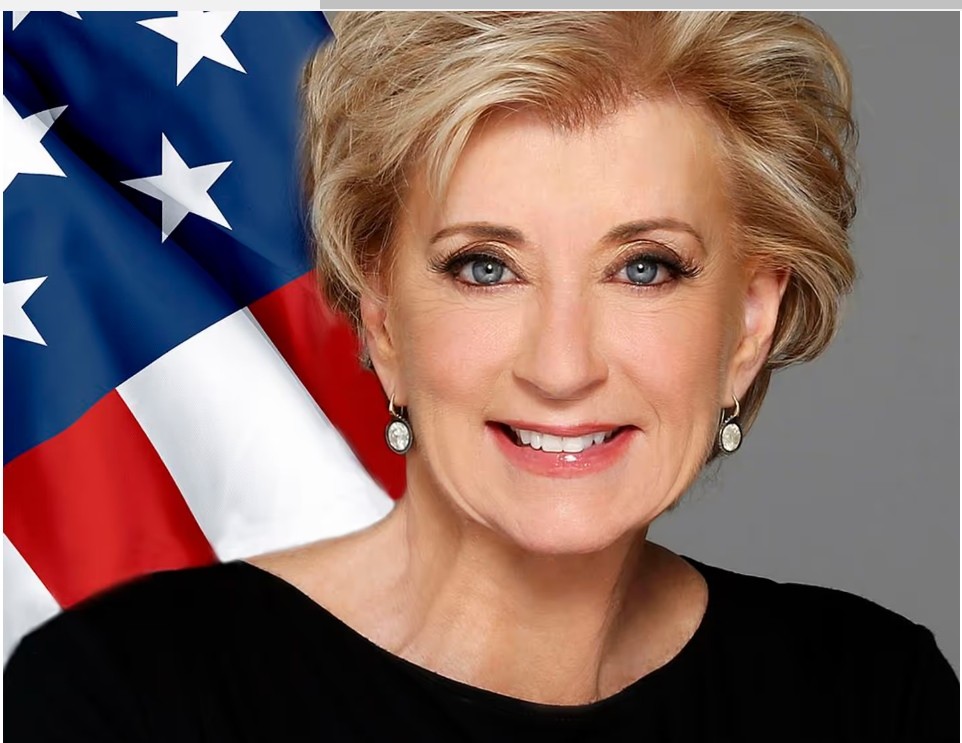Trump's Education Policies: How Will Private Schools Benefit?
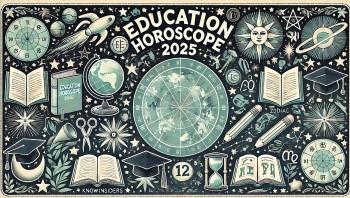 Education and Learning Horoscope 2025: What the Stars Say About Your Zodiac Sign Education and Learning Horoscope 2025: What the Stars Say About Your Zodiac Sign |
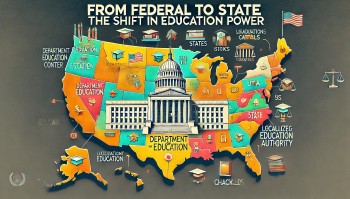 What Trump’s Education Policies Mean for You What Trump’s Education Policies Mean for You |
Trump’s Education Policies
Donald Trump's new education policies emphasize school choice and reduced federal oversight, creating significant opportunities for private schools. Vouchers redirect public funds to private institutions, making them more accessible to middle- and low-income families. This policy boosts enrollment and financial stability for private schools, enabling them to expand programs and improve facilities. Additionally, curricular freedom under less federal regulation allows private schools to tailor their education to meet family preferences, such as faith-based or specialized programs.
However, the policies are not without challenges. Increased enrollment may strain resources, and access to public funds could invite demands for greater accountability. Critics argue that vouchers may widen inequalities, disadvantaging underfunded public schools. Overall, while private schools stand to gain from Trump’s reforms, they must adapt to growth responsibly to maximize benefits while addressing potential concerns.
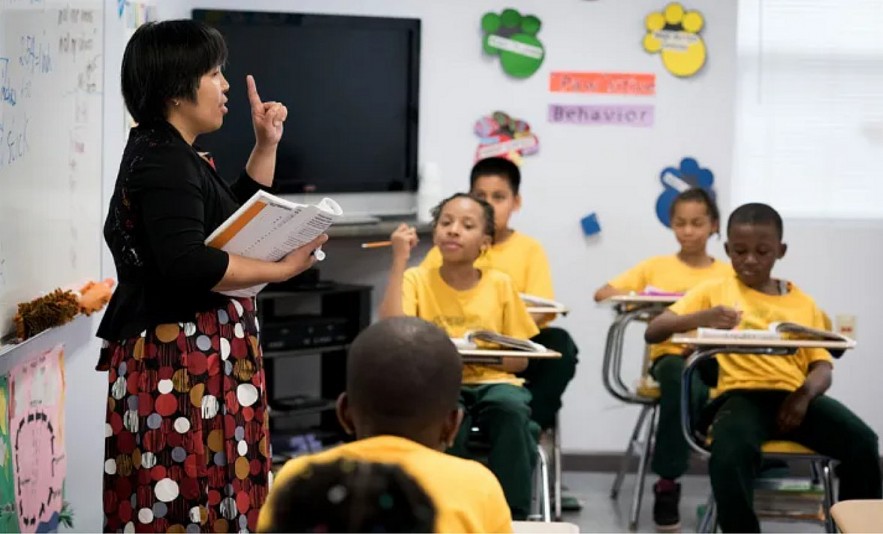 |
| A fourth grade math class at a private school in Washington, D.C |
By redirecting public funds through voucher programs, promoting alternatives to traditional public schools, and reducing regulatory burdens, Donald Trump’s agenda is likely to increase enrollment, resources, and influence for private institutions. Here’s a closer look at how private schools will benefit:
1. Increased Enrollment Through School Vouchers
-
School Choice Expansion: Trump’s support for voucher programs allows parents to use public funds for private school tuition.
- Impact:
- More families, particularly from middle- and low-income backgrounds, can afford private education.
- Private schools gain access to a broader pool of students, increasing diversity and enrollment numbers.
- Impact:
-
Homeschooling and Micro-Schools: Families can use vouchers to support hybrid or alternative educational models, further boosting private sector participation.
2. Enhanced Financial Stability
-
Access to Public Funds:
- Voucher programs and tax credits provide a steady stream of funding to private schools, previously reliant solely on tuition and donations.
- Increased enrollment brings additional tuition revenue, allowing schools to expand and invest in facilities, staff, and programs.
-
Philanthropic Growth: With heightened visibility and demand, private schools may attract more donations and endowments from supporters of school choice initiatives.
3. Reduced Competition from Public Schools
-
Public School Challenges:
- Public schools facing reduced funding due to voucher programs may struggle to maintain quality and resources.
- This disparity could encourage families to transition to private schools, particularly in districts with underperforming public schools.
-
Reputation Boost: Private schools may benefit from being perceived as higher-quality alternatives to struggling public institutions.
4. Increased Autonomy and Flexibility
-
Reduced Federal Oversight:
- Trump’s policies prioritize decentralization and reduced regulation, allowing private schools to operate with greater autonomy.
- Private schools are not bound by federal mandates like Common Core, enabling them to tailor curricula to specific values or educational philosophies.
-
Curricular Freedom:
- The emphasis on “patriotic education” may align with many private schools’ existing curricula, attracting families seeking alternative approaches to public school teachings.
5. Improved Facilities and Programs
-
Investment Opportunities:
- Increased enrollment and funding allow private schools to improve infrastructure, hire specialized teachers, and expand extracurricular offerings.
- Schools can focus on advanced programs, such as STEM initiatives or arts education, further enhancing their appeal to prospective families.
-
Innovative Learning Models: Private schools can lead the way in adopting cutting-edge teaching methods, like blended or project-based learning, due to fewer bureaucratic constraints.
6. Stronger Market Demand
-
Parental Preferences:
- Families increasingly prioritize personalized education and smaller class sizes, both hallmarks of private schools.
- With expanded school choice, private schools can meet this demand, especially in urban areas where public schools may be overcrowded.
-
Marketing Advantage:
- Voucher programs enable private schools to position themselves as accessible, high-quality alternatives, particularly in areas with struggling public schools.
7. Greater Influence in Education Policy
- Increased Stakeholder Role:
- As private schools grow through voucher programs, their leaders may gain more influence in shaping education policies at state and local levels.
- Collaboration with policymakers and education boards could further enhance their funding and operational benefits.
8. Opportunities for Religious and Specialized Schools
-
Support for Religious Schools:
- Religious schools, which make up a significant portion of private institutions, may see growth as voucher programs reduce the financial barrier for families seeking faith-based education.
-
Specialized Schools:
- Private institutions offering niche programs, such as language immersion, STEM focus, or arts education, stand to attract families looking for alternatives to standardized public education.
Challenges for Private Schools
While Trump’s policies present numerous benefits for private schools, some challenges may arise:
- Increased Scrutiny: Access to public funds through vouchers could invite calls for greater accountability and transparency, requiring private schools to meet new standards.
- Equity Concerns: Critics may argue that voucher programs widen the gap between affluent and disadvantaged families, potentially affecting private schools’ reputations.
- Operational Strain: Rapid enrollment growth may strain private schools’ infrastructure and resources if not managed carefully.
Conclusion
Trump’s education policies are poised to create significant advantages for private schools, from increased enrollment and funding to enhanced autonomy and influence. By capitalizing on these opportunities, private schools can expand their reach, improve their offerings, and play a more prominent role in shaping the future of American education. However, they must also address challenges related to equity, accountability, and resource management to ensure long-term success.
FAQs: How Trump’s Policies Will Benefit Private Schools
1. How will school vouchers impact private schools?
- School vouchers provide families with public funds to pay for private school tuition, increasing enrollment and revenue for private schools, especially for families who previously couldn’t afford private education.
2. Will private schools face more regulation due to access to public funds?
- While private schools currently operate with less oversight, accessing public funds through vouchers might lead to calls for greater accountability, such as standardized testing or financial transparency.
3. How will public school funding cuts benefit private schools?
- As public schools lose funding due to diverted resources, private schools may attract more families looking for higher-quality or more specialized education options.
4. Will all private schools benefit equally from Trump’s policies?
- Not necessarily. Schools offering niche or specialized programs, such as religious, STEM, or arts-focused curricula, may benefit more, while schools with less distinctive offerings may face competition.
5. Can private schools handle a significant increase in enrollment?
- Many private schools have the capacity to expand, but rapid enrollment growth could strain infrastructure and resources, requiring careful planning and investment.
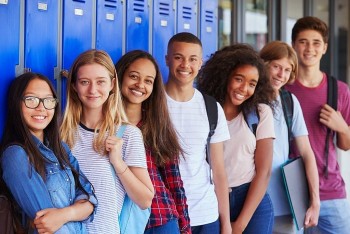 What Is The Average Private School Tuition In The United States? What Is The Average Private School Tuition In The United States? One of the many variables influencing the typical private school tuition is the kind of private school. To find out more about private school tuition ... |
 How Many Public/Private Schools Are There In The US? How Many Public/Private Schools Are There In The US? Here is the answer to your question about how many public and private schools there are in the US. This piece is all about US ... |


